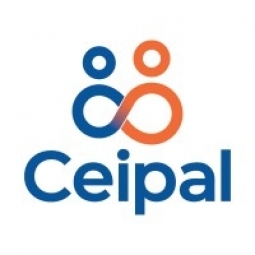Technology Category
- Automation & Control - Human Machine Interface (HMI)
- Platform as a Service (PaaS) - Application Development Platforms
Applicable Functions
- Human Resources
- Quality Assurance
Use Cases
- Demand Planning & Forecasting
- Visual Quality Detection
Services
- System Integration
- Testing & Certification
About The Customer
Quality Staffing of America, Inc. is a staffing firm that specializes in the temporary placement of administrative, customer service, and professional personnel. The company was founded in 2013 with the specific purpose of serving MSP/VMS contingent staffing programs for Fortune 500 companies. Their processes and technology are designed to optimize serving these programs. Quality Staffing of America Inc. has one of the highest conversion rates in the staffing industry and works with some of the world's largest corporations.
The Challenge
Quality Staffing of America Inc., a staffing firm specializing in MSP programs for Fortune 500 companies, was facing several challenges with their existing Applicant Tracking System (ATS). Despite having a high conversion rate in the staffing industry, their ATS was working against them throughout the recruitment process. The system had a poor user interface and inefficient workflows, which significantly impacted productivity during busy seasons. The ATS was also underperforming and had subpar customer service, leaving many of the company's complaints unresolved. Additionally, the company was locked into a year-long contract with their ATS provider, preventing them from scaling their recruiting workforce based on demand. The provider also charged for every transaction in the system, adding up to $12,000 to their yearly bill. Lastly, the ATS provider charged for every VMS integration, which was a basic requirement for operating in the MSP space.
The Solution
In search of a more cost-effective ATS, Quality Staffing of America Inc. switched to CEIPAL. CEIPAL offered an intuitive, customizable interface that improved workflow efficiency by over 50%. The platform also had powerful performance capabilities, reducing tasks that took an hour with the previous provider to mere minutes. CEIPAL also offered 24/7 customer support, ensuring that any questions or issues were promptly addressed. Unlike the previous provider, CEIPAL offered a flexible, month-to-month subscription model, allowing Quality Staffing of America to scale their recruiting workforce as needed. The license price was also 80% less expensive than the previous provider. Furthermore, CEIPAL did not charge for VMS integrations or transactions, and the platform already integrated with over 20 VMS providers at no additional cost.
Operational Impact
Quantitative Benefit

Case Study missing?
Start adding your own!
Register with your work email and create a new case study profile for your business.
Related Case Studies.

Case Study
Rapid and Simple Installation Provides Access to Critical Data
The customer needed to monitor non-contact alignment and non-contact process temperature in different positions along a 100-meter production line. Space around the line is tight and operators and forklift trucks are passing by constantly. Installation of correctly routed cables from sensors back to the control station would have been expensive and would have taken too long and caused too much disruption to ongoing operations.
Case Study
Real-Time IoT Tracking and Visualization Improve Manufacturing
Shimane Fujitsu, a wholly-owned subsidiary of Fujitsu and a leading manufacturer of business notebooks and tablets, set out to improve processes where factory inspections found product errors. Prioritizing product rework based on shipping date was challenging, and it caused Shimane Fujitsu to incur additional shipping fees. The company needed a way to collect data to better track the location of products in the rework cycle as well as monitor progress in real time. The collected data would also help process analysis for future improvements.

Case Study
Automatic Vision Inspection Solution for Product Traceability
With greater market demand for food safety, traceability is receiving increasingly more attention in the food and beverage industry as well as the packaging industry. One of the world's leading providers of beverage containers required a system to identify bar codes and alphanumeric characters on ink-jet-printed labels at a run rate of 7 units and minimum 99.9% accuracy. Since there were few engineers in the factory, the customer sought to implement a reliable system with an easy-to-use GUI for workers with a less technical background.

Case Study
Automated Inspection of Axial Piston Motors
Earth moving machines require an immense energy source to provide the power they need for use within civil engineering works. ‘Hydraulic Motors’ allow this power to be applied to enable the machines movement and in addition ‘Control Valves’ also provide the operator with the precise feel and control required to undertake the necessary tasks needed for such machines, including trenching, rock breaking and demolition. These same motors are also used in cranes, wheel loaders and general construction equipment. Though not a new product, the designs of such motors and control valves have been around a few decades, the overall method for manufacture has changed rapidly over the last few years to take account of the need for more modular designs, manufacture and just-in-time manufacturing. Kawasaki Precision Machinery (UK) Ltd based in Plymouth, UK is one of the leading manufacturers of such motors and pumps. They approached Industrial Vision Systems Ltd to come up with a solution to provide automated inspection of such pumps for their semi-automated assembly process. The pumps requiring inspection are at a sub-assembly stage when they are due for the inspection process to take place. Due to the highly modular nature of the construction each part of the pump can have many different derivatives which overall have a different effect on the pump in industrial use. It is therefore critical for the manufacturing process to check all components are the correct type and number for the construction of the pump to begin. Once built it is difficult and costly to rework such units if a fault is detected later in the manufacturing process, therefore automated visual inspection is critical for the success in building quality motors and pumps.

Case Study
Parts Quality Gets Robotic Boost
When manufacturers, such as the world's top car makers and automotive parts suppliers, produce components in their factories, traditional QA testing has been limited to verifying the quality of random parts pulled off the line throughout the day.It was time consuming to perform the detailed tests required, and defective parts could get through despite randomized tests.If a defective part caused a recall or accident, manufacturers could face costly litigation or irreparable damage to their reputation.
Case Study
Pepsico's Transformation to Smarter Sales Forecasting with Designer Cloud
PepsiCo, a global consumer packaged goods company, faced a significant challenge in calibrating sales forecasting to supply the right product quantities to its retailers. The sales forecast incorporated a variety of data, including warehouse data, store stock data, and promotional forecast data, all of which were provided by retailers in different file formats and delivered using various methods. The primary challenge was the speed of preparing a sales forecast. With the existing Microsoft Access and Excel-based processes, the time required to prepare this data was so extensive that analysts could only leverage it once a month or not at all. This inefficiency risked under or oversupplying retailers, potentially impacting PepsiCo's business operations and customer relationships.







